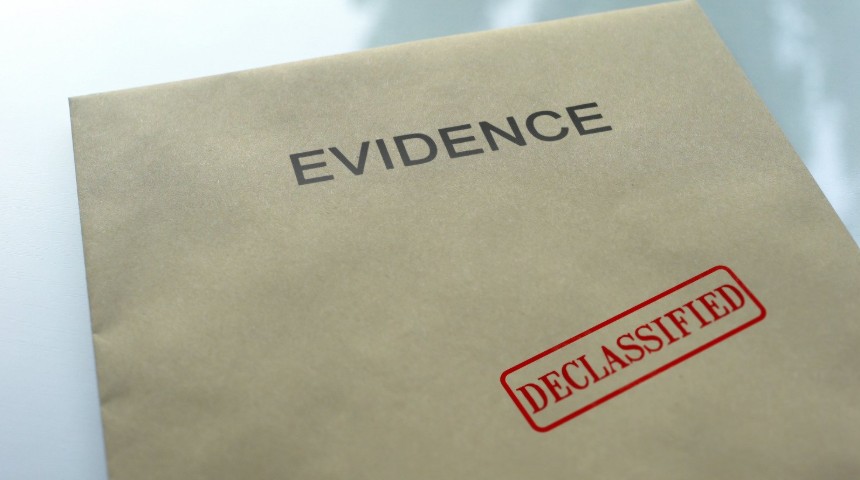If you’re applying for Universal Credit and struggling with a serious health condition, you may be wondering about the conditions that automatically qualify you for LCWRA—Limited Capability for Work and Work-Related Activity.
The good news is, in certain circumstances, you may not need to go through the full Work Capability Assessment (WCA).
This guide walks you through exactly what that means and whether you could qualify automatically.
What Is LCWRA and Why Does It Matter?

How does LCWRA fit into Universal Credit?
When you apply for Universal Credit and report a health condition or disability, the Department for Work and Pensions (DWP) assesses whether you’re fit to work.
If they decide you have limited capability for work and work-related activity (LCWRA), it means:
- You’re not expected to work or prepare for work
- You may get an extra amount of money added to your Universal Credit
- You won’t have to attend job centre appointments related to finding work
This extra support is especially helpful if your condition seriously affects your day-to-day life.
What support do you get if placed in the LCWRA group?
Once you’re in the LCWRA group, you receive:
- An additional £390.06 per month (as of 2025)
- No job search requirements
- Peace of mind, knowing that your situation is recognised officially
Can You Automatically Qualify for LCWRA Without an Assessment?
What is a Work Capability Assessment (WCA)?
Usually, to be put in the LCWRA group, you go through a Work Capability Assessment. This is a process where you provide medical evidence, and sometimes attend a face-to-face or video consultation.
But here’s the important part: some conditions allow you to skip this step entirely.
Who gets exempted from the WCA?
You may be exempt if:
- You are terminally ill
- You are undergoing or recovering from specific types of cancer treatment
- You have certain severe health conditions listed by the DWP
- Your doctor provides a DS1500 or SR1 medical form indicating a severe condition
These cases are considered so clearly severe that a full assessment is unnecessary.
What Health Conditions Automatically Qualify You for LCWRA?

Do terminal illnesses qualify automatically?
Yes. If your doctor believes you have a terminal illness—typically meaning you are expected to live less than 12 months—you will automatically be placed in the LCWRA group.
Your GP or specialist will complete a DS1500 or SR1 form, and once submitted, the DWP will bypass the full assessment process.
What mental health conditions can qualify you?
Certain mental health conditions may qualify you automatically—especially if they present a “substantial risk” to your health or others if you’re asked to work. For example:
- Severe depression with suicidal thoughts
- Schizophrenia or psychosis
- Severe anxiety or PTSD
- Personality disorders with high-risk behaviour
In these cases, if your GP or mental health team supports your claim, the DWP may place you in LCWRA without further assessments.
Are there physical disabilities that are accepted automatically?
Yes, especially if your disability prevents you from performing basic daily tasks. This may include conditions such as advanced multiple sclerosis, motor neurone disease, or total loss of mobility.
The DWP considers how the condition affects your ability to manage daily tasks, interact socially, or move independently. It’s about the impact—not just the diagnosis.
Table: Common Conditions That May Automatically Qualify You
| Condition Type | Example Conditions | Assessment Needed? |
| Terminal Illness | End-stage cancer, advanced ALS | No (DS1500/SR1 required) |
| Mental Health (Severe) | Psychosis, severe depression with risk | Often No (GP letter) |
| Physical Disability | Paralysis, advanced MS, organ failure | Often No |
| Cancer Treatment | Radiotherapy, chemotherapy | No during treatment |
What Evidence Do You Need to Support Your LCWRA Claim?

Do you need a doctor’s letter or medical records?
Yes. Even if you may qualify automatically, you’ll still need to provide medical evidence.
This can include letters from your GP or specialist, hospital discharge summaries, mental health assessments, or documentation like the DS1500 form for terminal illness.
The more specific and detailed your evidence, the smoother your application will go.
How does the DWP define “substantial risk” to health?
If asking you to engage in work-related activities would cause a serious risk to your physical or mental health, the DWP may place you in the LCWRA group automatically.
This is particularly relevant if you have suicidal thoughts, self-harming behaviours, or chronic anxiety. You’ll need your medical provider to explain this risk clearly.
Are There Other Ways to Qualify Automatically?
What if you’re receiving cancer treatment?
If you’re undergoing chemotherapy, radiotherapy, or recovering from surgery related to cancer, you automatically qualify for LCWRA. Just ask your oncologist or GP to confirm this in writing.
What if you’re in the final stages of a terminal condition?
If your doctor believes you’re in the last stages of life (with a prognosis of less than 12 months), you are fast-tracked into the LCWRA group under special rules.
What are LCWRA descriptors and do you match any?
Even if you’re not on the automatic list, you may still meet the LCWRA descriptors—a set of criteria the DWP uses.
These descriptors measure your ability to do everyday tasks like preparing food, managing treatments, or interacting with people.
If you match one or more strongly, you may still be placed in the LCWRA group without needing a full WCA.
What Happens After You’re Placed in the LCWRA Group?
Do you need to look for work or attend appointments?
No. Once you’re in the LCWRA group, you’re exempt from work-related requirements. This means:
- No job interviews
- No CV workshops
- No Jobcentre visits for job-seeking
You’re free to focus entirely on your health and recovery.
How much extra do you receive on Universal Credit?
As of 2025, the LCWRA element adds £390.06 per month to your Universal Credit claim. This payment is added automatically once the DWP makes their decision, and it’s paid from the fourth assessment period after you report your condition (unless you’re terminally ill—in that case, it’s immediate).
What Should You Avoid When Applying for LCWRA?

Can you get denied even with a serious condition?
Yes. Unfortunately, the DWP can deny claims if the medical evidence isn’t strong enough or doesn’t clearly show how your condition impacts your daily life.
That’s why it’s so important to be honest and detailed in every form and conversation.
Mistakes to avoid when applying
Many people unintentionally delay or harm their claims by:
- Sending incomplete or vague evidence
- Understating how much their condition affects them
- Missing DWP letters or deadlines
- Not asking their GP for the right supporting documentation
Summary Table: LCWRA Eligibility Overview
| Qualification Path | Assessment Needed? | Evidence Needed | Notes |
| Terminal Illness | No | DS1500/SR1 form | Fast-tracked |
| Cancer Treatment | No | Oncologist/GP letter | Covers recovery period too |
| Severe Mental Health | Often No | GP, psychiatrist report | Must show “substantial risk” |
| Physical Disability | Often No | GP or specialist report | Must be significant and long-term |
| Descriptors (General Path) | Yes | ESA50/UC50 form + evidence | Used when automatic conditions don’t apply |
Conclusion – How to Strengthen Your Case for LCWRA?
If you’re dealing with a serious health condition, it’s vital to understand the conditions that automatically qualify you for LCWRA.
Getting placed in the LCWRA group means more than financial support—it means recognition of your real, daily struggles.
The key is making sure your application is clear, supported by strong medical evidence, and highlights how your condition limits your ability to work.
When done right, the process can lead to the right outcome—without unnecessary stress or delay.
FAQs – Quick Answers on Conditions That Automatically Qualify You For LCWRA UK?
1. How long does LCWRA last?
If your condition is long-term or terminal, LCWRA can continue indefinitely, but the DWP may review your case periodically.
2. Can you appeal if you’re denied LCWRA?
Yes. You can request a mandatory reconsideration, and if needed, appeal to a tribunal. Many people win on appeal—especially when supported with better evidence.
3. Will LCWRA affect other benefits?
LCWRA is part of Universal Credit, so it doesn’t stop you from getting other benefits like PIP (Personal Independence Payment). In fact, qualifying for both is common.

Leave a Reply